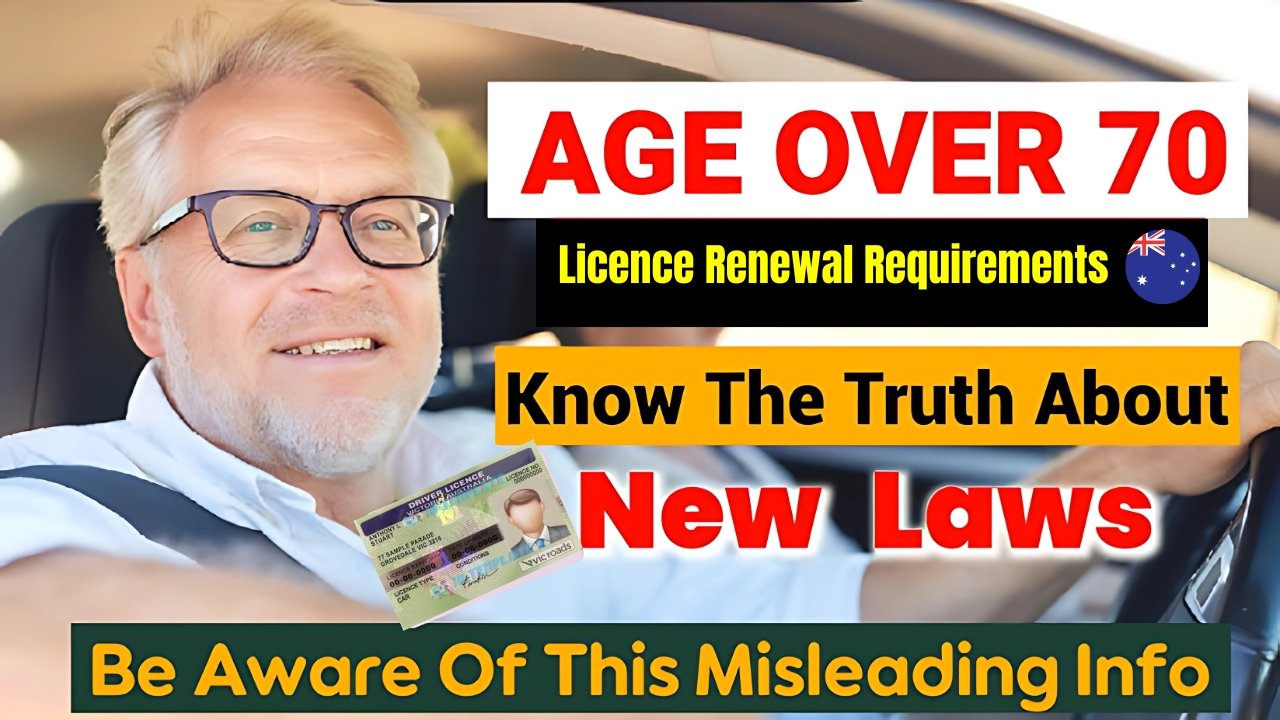
The Licence Renewal for renewing a licence differ from one place to the next once a driver is over 70. Understanding the exact steps needed can help seniors avoid any surprises—and keep their independence intact.
Victoria takes a similar route. Once a driver turns 75, they must provide a completed medical report every two years. Drivers over 85 can either keep their full licence with a report every year or accept a restricted licence that limits travel to a prescribed area.
Queensland has a more straightforward process. Seniors from 75 and up must pass a vision and a simple road test, with reassessments every two years. In South Australia, the 70-plus driver is only required to pass a vision test, but a comprehensive assessment can be demanded if there are any medical concerns.
Moving to Western Australia, the rules are similar to Queensland but with a longer renewal period. Drivers 75 and older still must undertake a sight test, yet the authorities may request a medical report or a practical test based on the individual driver’s health history.
In Tasmania and the Northern Territory, the age threshold for mandatory test and medicals is also set at 75 and over. Drivers in these regions often report shorter queues at the test centre, though that varies on the day, so early arrival is still advisable.
Finally in the Australian Capital Territory, no separate assessment is needed for 70-plus drivers. A simple 5-year renewal with a vision test suffices. Yet, if health problems were documented at a prior renewal, then further scrutiny may still be required.
In sum, the diverse requirements from state to state may seem daunting, yet seniors can keep their licence by knowing when to book their test, planning a quick visit to their GP, and, most importantly, keeping their health enthusiastically on their side.
By comparison, Victoria handles senior driver assessments quite differently. There are no age-triggered tests. Instead, the state depends on a self-declaration model. Every driver—young, old, and all ages between—must inform the licensing authority about any medical condition that could affect their ability to drive. The focus is on individual honesty and the judgment of their health provider rather than a blanket test.
Queensland sits between the two extremes. Drivers hit the age of 75 and must obtain a medical certificate from their doctor, which must be produced every year. The state does not require an on-road assessment just because a driver has turned 75, keeping the age-anchor driving test philosophy to a minimum.
Western Australia’s Tailored System
Western Australia diverges again. From age 80 onwards, every driver must present an annual medical check-up to keep their licence. Once the driver reaches age 85, extra evaluations could include an on-road test if their doctor recommends it. The setup is a blend, being less strict than the compulsory driving assessments in NSW, yet more involved than the trust-based policies of Victoria.
Tasmania, South Australia, and Territory Practices
Tasmania again mirrors the Victorian model, lacking a compulsory driving assessment purely because of age. Still, the state looks closely at medical fitness, which can trigger an in-depth review whenever issues are raised.
South Australia mandates a yearly health check starting at 75. The check zeroes in on health issues that could weaken driving abilities instead of putting seniors through a road test. Over in the Northern Territory and Australian Capital Territory, the rules are lighter. They don’t have strict age rules; instead, seniors fill out a basic health form, and a doctor steps in for a closer look only when the answers raise a flag.
Why Some Places Review Seniors’ Licences by Age
The different rule books show the tried-out solution of balancing respect for seniors with the facts. As people get older, some normal changes—poorer eyesight, slower reflexes, or new health problems—can sneak in and make driving trickier. These policies are designed to guard, not to punish. The goal is that everyone sharing the road, seniors included, gets home safely.
States and territories have come to see that just getting older doesn’t mean a driver has lost the knack. Lots of seniors handle the wheel just fine even in their 80s, while others might struggle much earlier. Because of this, most jurisdictions have dropped the related and put the need for health checks front and center instead of blanket on-road tests.
Navigating the Renewal Process: Practical Considerations
When the time for licence renewal arrives, careful planning can make things easier. Regular check-ups with your doctor, open talk about medications that might change how you feel behind the wheel, and asking yourself how comfortable you are in different driving situations will all help. Because many seniors already plan to drive less at night, skip complex turns, or wait for clearer skies, changing habits can be a natural part of the process.
As your next renewal date approaches, take a few quiet minutes to think about how you feel in the driver’s seat. Forget worries about losing freedom; instead, think of making a choice that keeps the steering wheel in your hands for safe, comfortable trips in the years ahead.
Frequently Asked Questions
Do all Australian states require driving tests for seniors?
No. In fact, only NSW asks seniors aged 85 and older to take a driving test for an unrestricted licence.
What medical conditions must I report when renewing my licence?
You should tell the authorities about any vision, memory, movement, or heart problems that might make driving harder to do safely.
Can I renew my senior driver’s licence online?
It depends on where you live. Most states ask older drivers to renew in person, so staff can check your identity and make sure you are still fit to drive.
Major Driving Alert: Over 60+ New Road Rule Changes in Australia from Aug 2025..